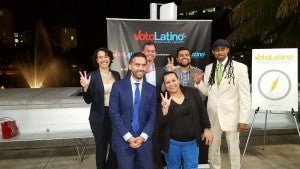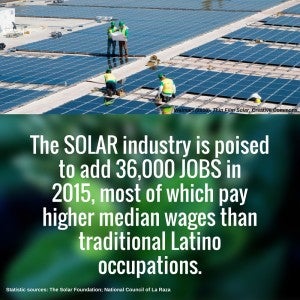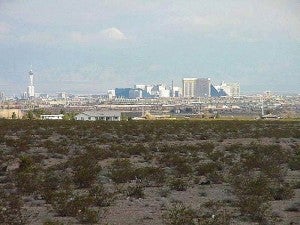
Source: Flickr/Kate Gardiner
A year ago, we joined our partners at the League of United Latin American Citizens on Twitter to ask U.S. Environmental Protection Agency Administrator Gina McCarthy about the impacts of air pollution on our health.
Many of the questions participants raised focused on the connection between air quality and asthma.
In a follow-up to the event, McCarthy reminded us that while there’s no known cure for asthma, “understanding how indoor and outdoor air pollutants can trigger an asthma attack or episode is an important step in managing this condition.”
Fortunately, decision-makers are now considering several new policies that would decrease the number of asthma attacks and the severity of symptoms.
Cutting climate and air pollution
As global temperatures rise, more ground-level ozone, a key component of smog, builds up. This, in turn, leads to more frequent and intense asthma attacks.
To address these problems, the EPA is working on several measures to limit the pollution that causes climate change, worsens air quality and threatens our health. The agency is:
- finalizing a rule to reduce emissions from power plants, the largest source of climate pollution in the United States.
- working on a rule to limit climate pollution from oil and gas production. It would also reduce toxic chemical releases during the energy extraction process.
- proposing a stronger ozone standard to reduce smog pollution and restore healthy air.
Reducing the threat of toxic chemicals
Many chemicals found indoors are also known or suspected “asthmagens,” environmental agents that cause or exacerbate asthma. These chemicals can affect us in our homes – or in any of the indoor areas where Americans spend about 90 percent of their time.
Today, we’re exposed to chemicals in everyday household products in large part because of a 40-year old chemical safety law that has failed to protect us. The law is so weak, in fact, that EPA can’t even regulate chemicals known to cause cancer.
Congress is therefore considering reforming the Toxic Substances Control Act. If a new bill passes, we will have better safeguards against many asthmagens.
Get involved
Asthma affects nearly 26 million people in the U.S., including 1 in 10 Latino children who currently suffer from asthma. An even higher proportion of Latino kids, 14 percent, have been diagnosed with asthma at some point in their lives. Unfortunately, this illness presents a particular concern for Latinos in our country.
Studies have also shown that Latino-Americans are less likely than non-Latino whites to be diagnosed with asthma, have an asthma management plan, or use a controller medication. As a result, Latino children are 40 percent more likely than non-Latino white children to die from this condition.
If you’d like to hear more about these topics, you can join us for our Latino Health and the Environment Twitter Town Hall Series.
First up is an Earth Day Twitter Town Hall, where McCarthy will be answering questions about environmental issues and human health, why the Latino community is disproportionately affected by climate change, and what we can all do to protect ourselves.
Then stay tuned in May for our second Twitter Town Hall, which will focus on the health impacts of toxic chemicals.
This post originally appeared on our EDF Voices blog.















